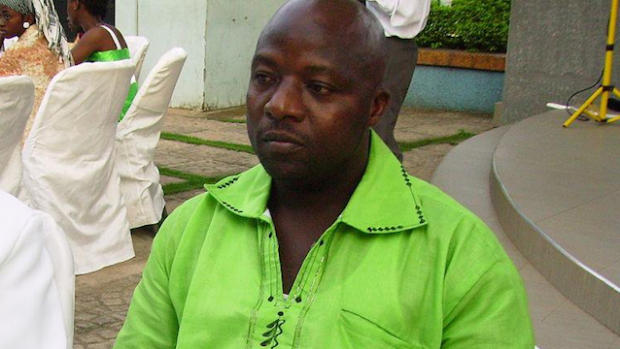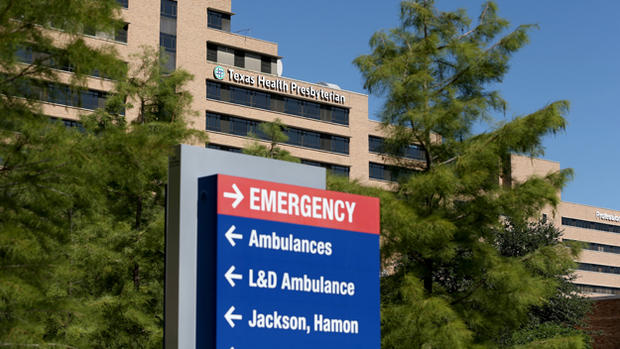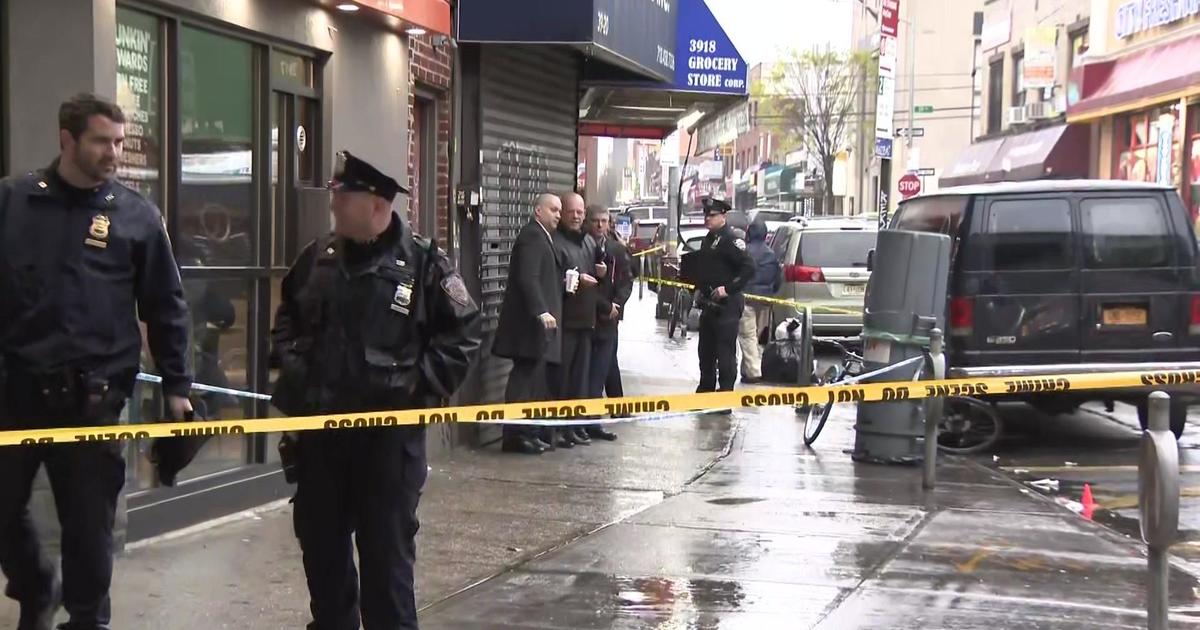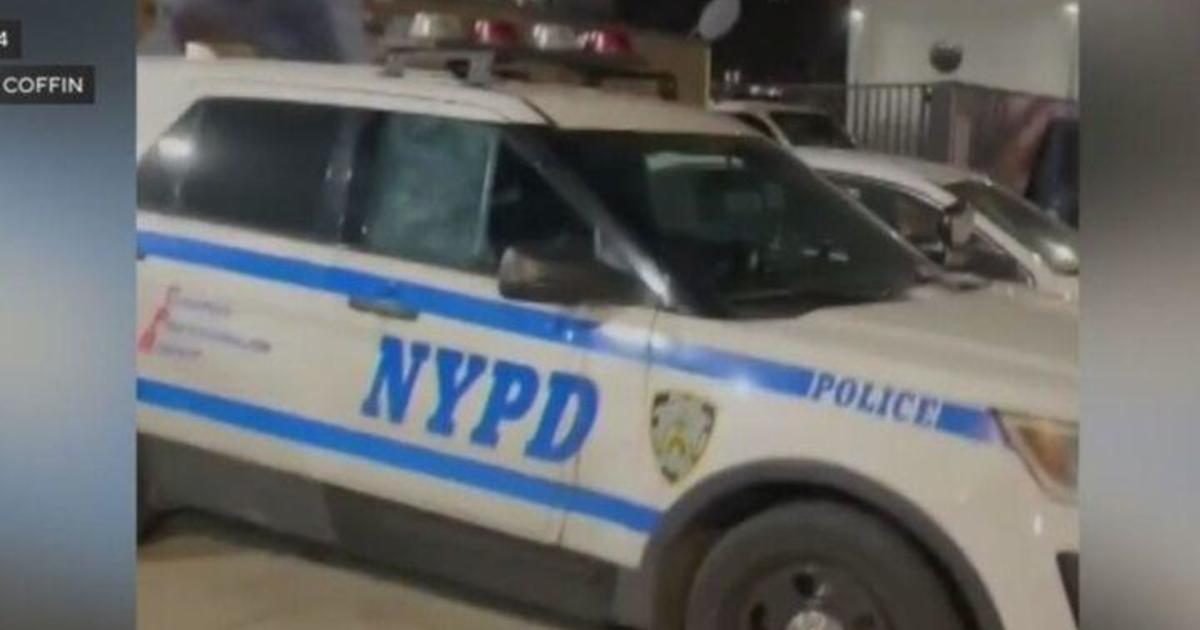Thomas Eric Duncan, Ebola Patient In Texas, Dies
NEW YORK (CBSNewYork/AP) -- The first Ebola patient diagnosed in the United States died in a Dallas hospital Wednesday, a little more than a week after his diagnosis exposed gaps in the nation's defenses against the disease and set off a scramble to track down anyone exposed to him.
Click Here For More From CBS Dallas
Thomas Eric Duncan, 42, was pronounced dead at 7:51 a.m. at Texas Health Presbyterian Hospital Dallas, where he was admitted Sept. 28 and had been kept in isolation, according to spokesman Wendell Watson.
"Mr. Duncan succumbed to an insidious disease,'' Watson said in a statement.
Duncan carried the deadly virus with him from his home in Liberia, though he showed no symptoms when he left for the United States. He arrived in Dallas on Sept. 20 and fell ill several days later. His condition was downgraded during the weekend from serious to critical.
Others in Dallas still are being monitored as health officials try to contain the virus that has ravaged West Africa, with more than 3,400 people reported dead. They also are trying to tamp down anxiety among residents frightened of contracting Ebola, though the disease can be spread only through direct contact with the bodily fluids of an already sick person.
Health officials have identified 10 people, including seven health workers, who had direct contact with Duncan while he was contagious. Another 38 people also may have come into contact with him. The four people living in the northeast Dallas apartment where Duncan stayed have been isolated in a private residence.
"The past week has been an enormous test of our health system, but for one family it has been far more personal --- They have our sincere condolences, and we are keeping them in our thoughts,'' Dr. David Lakey, commissioner of the Texas Department of State Health Services, said in statement. "We'll continue every effort to contain the spread of the virus and protect people from this threat.''
Of the five Ebola patients treated so far in the U.S., Duncan was the only one not cared for in one of the special hospital units set up to deal with highly dangerous germs. That's because health officials knew the others had Ebola at the time they decided where the patients should go, whereas Duncan sought care at the Texas hospital on his own.
Health officials also have said that any hospital with isolation capabilities can treat Ebola patients, but Duncan's death is sure to renew attention on the Texas hospital's response, especially missing the chance to treat him two days sooner, when he first sought care.
There is no way to know whether any specific treatment or step might have saved his life, just as whether any experimental drug he did or did not receive helped. He was getting advanced care -- dialysis to treat kidney failure, and a breathing machine, and experimental antiviral drug -- when he died.
Officials have said everyone who potentially had contact with Duncan is being monitored for 21 days, the normal incubation period for the disease.
Duncan passed an airport health screening in Liberia, where doctors measured his temperature as normal and found no signs of Ebola symptoms. But a few days after he arrived, he began to have a fever, headache and abdominal pain.
Duncan went to the emergency room of Texas Health Presbyterian in Dallas on Sept. 24, but was sent home. By Sept. 28, his condition had worsened and an ambulance took him back to the hospital where he stayed in isolation.
Duncan's family had visited Texas Health Presbyterian earlier in the week and glimpsed Duncan using a camera system, but said Tuesday they had declined to view him again because the first time had been too upsetting.
"What we saw was very painful. It didn't look good,'' Duncan's nephew, Josephus Weeks, said Tuesday.
The hospital has changed its explanation several times about when Duncan arrived and what he said about his travel history. It has acknowledged that Duncan told them on his first visit that he came from West Africa.
The Dallas County medical examiner's office will not be receiving Duncan's body, but spokesman Stephen Kurtz said he did not know Wednesday what the alternate arrangements would be.
Meanwhile, a new layer of screening is being implemented at five U.S. airports that receive more than 94 percent of travelers from the Ebola-affected nations of Guinea, Liberia, and Sierra Leone, the CDC said Wednesday. The airports are John F. Kennedy and Newark Liberty, Dulles outside Washington, O'Hare in Chicago and Hartsfield-Jackson in Atlanta.
Customs and Border Protection agents at the five airports will check passports, take travelers from Guinea, Liberia, and Sierra Leone to a special screening area, observe them for signs of illness and ask them a series of questions about their health and possible exposure to Ebola.
If any red flags are raised, they would then be evaluated at a CDC quarantine station.
You May Also Be Interested In These Stories
(TM and © Copyright 2014 CBS Radio Inc. and its relevant subsidiaries. CBS RADIO and EYE Logo TM and Copyright 2014 CBS Broadcasting Inc. Used under license. All Rights Reserved. This material may not be published, broadcast, rewritten, or redistributed. The Associated Press contributed to this report.)





